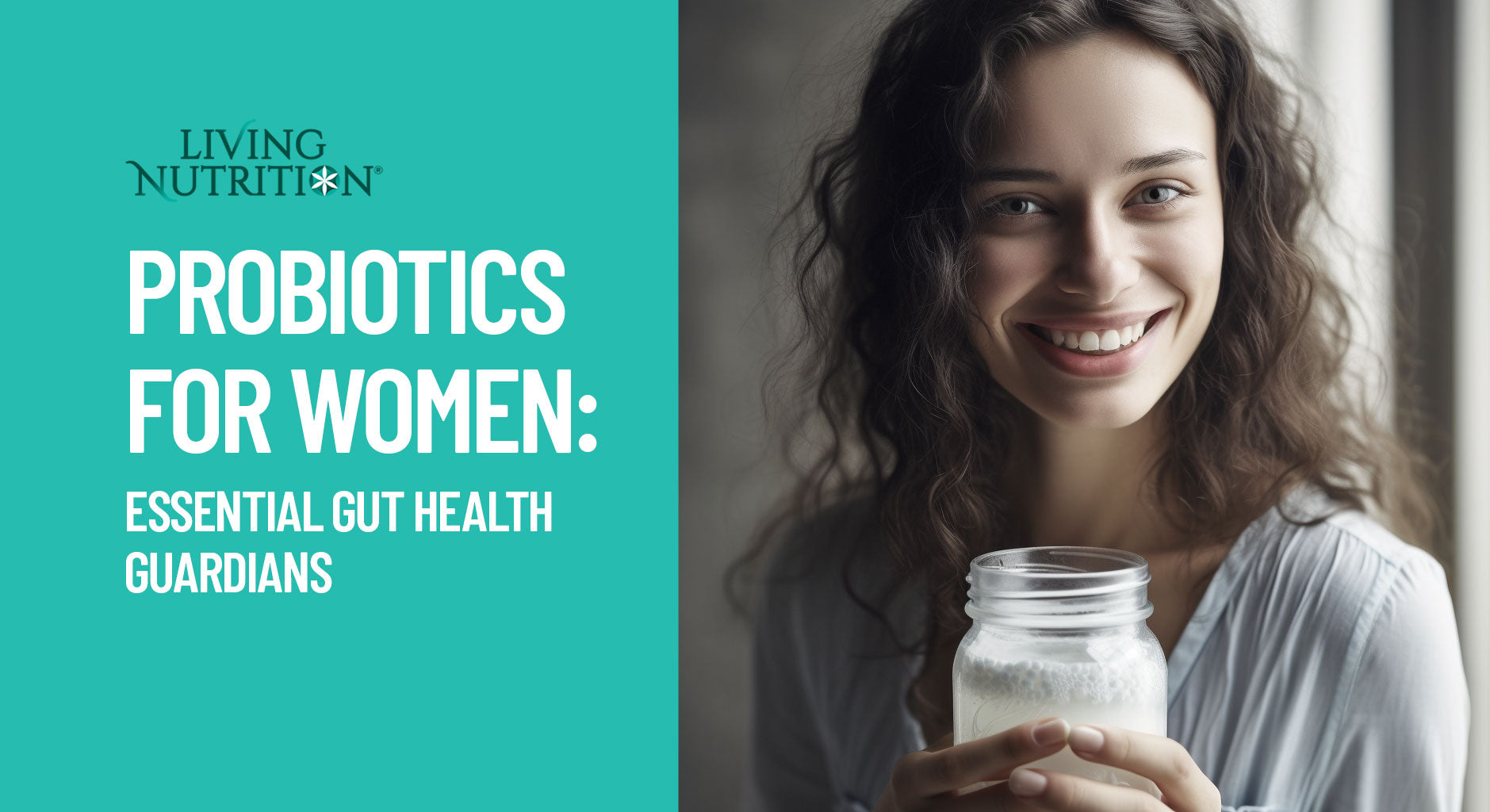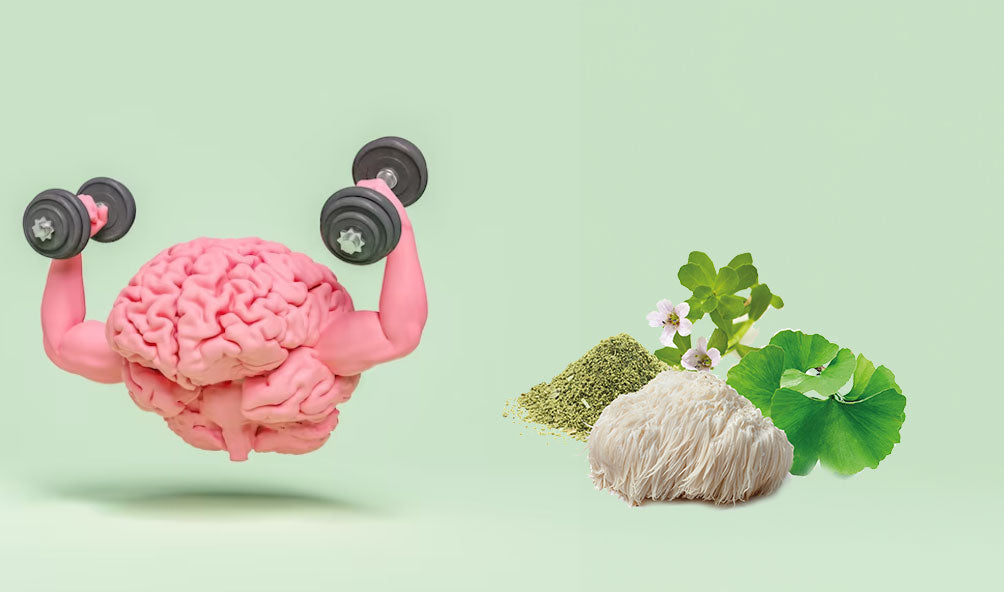Probiotics for Women: Essential Gut Health Guardians

In the dynamic landscape of health and wellness, “probiotics” have taken centre stage, particularly probiotics for women. These powerful, beneficial microorganisms have a profound impact on our wellbeing, and their significance is particularly magnified when it comes to female health.
Probiotics are live bacteria and yeasts that are beneficial for our digestive, and overall health. In the realm of female health, probiotics for women aren’t just about enhancing digestion, but about supporting overall wellbeing, from hormonal balance to urinary health. This article aims to provide an in-depth look at these microscopic helpers, uncovering how probiotics for women can be a cornerstone of health optimisation.
Understanding Probiotics
Before we delve into the specifics of probiotics for women, it’s essential to have a general understanding of what probiotics are and how they work. Probiotics are essentially good bacteria that live in your body and keep your gut healthy. These microscopic organisms contribute to a variety of functions in our bodies, with benefits extending beyond the gut.
Probiotics are naturally found in our bodies, but they are also present in certain foods and available as dietary supplements. Some common strains you might come across are lactobacillus and bifidobacterium, both of which are families with numerous sub-strains that provide specific health benefits.
Probiotics vs. Prebiotics: Knowing the Difference
As we discuss probiotics for women, it’s important to also introduce the concept of prebiotics. While they might sound similar, probiotics and prebiotics serve different but complementary roles in maintaining gut health.
Probiotics, as we mentioned, are live beneficial bacteria, while prebiotics are a form of dietary fibre that serve as food for these bacteria, aiding their growth and functionality. In other words, probiotics introduce good bacteria into the gut, and prebiotics nourish them to ensure they thrive.
To get a more in-depth understanding of how probiotics and prebiotics work together to promote gut health, check out this informative blog post: probiotics vs prebiotics.
The Importance of Probiotics for Women
Probiotics and a healthy microbiome are key for female wellbeing, playing crucial roles in several aspects of overall health:
- Improved Digestive Health: Probiotics aid in the balance and health of gut flora, promoting efficient digestion and helping to reduce symptoms of conditions like irritable bowel syndrome (IBS) (1).
- Enhanced Immune Function: A significant portion of our immune system resides in the gut, and a balanced gut microbiome aids in a stronger immune response (2).
- Urinary and Vaginal Health: Probiotics, especially the lactobacillus family, have been associated with improved urinary and vaginal health in women, potentially reducing the risk of urinary tract infections and bacterial vaginosis (3).
- Mental Wellbeing: Emerging research suggests a link between gut health and mental wellbeing, indicating the microbiome could play a role in managing mood disorders and reducing stress (4).
The Female Microbiome
The female microbiome refers to the unique microbial community that exists in the female body, particularly in the reproductive and urogenital tracts. This microbiome plays a crucial role in maintaining women’s health and wellbeing.
The composition and balance of the female microbiome are essential for various functions, including:
- Vaginal Health: A healthy vaginal microbiome is dominated by lactobacillus species, which help to maintain an acidic environment and prevent the overgrowth of harmful bacteria. This balance is crucial for preventing conditions such as bacterial vaginosis (BV) and yeast infections.
- Urinary Tract Health: The microbiome in the urogenital tract influences urinary health. Lactobacillus strains can help inhibit the growth of uropathogenic bacteria, reducing the risk of urinary tract infections (UTIs).
- Reproductive Health: A balanced microbiome is crucial for reproductive health. Disruptions in the microbiome can potentially impact fertility and increase the risk of certain complications during pregnancy.
Understanding and nurturing the female microbiome through practices such as maintaining good hygiene, supporting healthy vaginal pH, and incorporating beneficial microorganisms can contribute to overall female health and wellbeing.
Probiotics and Hormonal Balance
Probiotics have gained attention for their potential role in supporting hormonal balance in women. Hormones play a vital role in various aspects of women’s health, including menstrual cycles, fertility, mood regulation, and menopause. Maintaining a healthy balance of hormones is essential for overall wellbeing.
Here’s how the microbiome may influence hormonal balance in women:
- Menstrual Health: Research suggests that probiotics, particularly certain strains of lactobacillus and bifidobacterium, may help alleviate symptoms associated with menstrual cycles, such as bloating, mood swings, and menstrual pain. A balanced microbiome may help modulate hormonal fluctuations and promote a more balanced menstrual cycle.
- Fertility Support: A healthy gut microbiome is thought to play a role in fertility. Probiotics can contribute to a balanced gut environment, which may positively impact reproductive health and support fertility outcomes.
- Menopause: Probiotics have shown promise in managing menopause-related symptoms, such as hot flushes, night sweats, and mood swings. They may help modulate the gut-brain axis, which is involved in hormonal regulation and mood.
- Stress Resilience: Chronic stress can disrupt hormone balance. Probiotics may help regulate the body’s stress response system, potentially mitigating the negative impact of stress on hormonal equilibrium.
While more research is needed to fully understand the mechanisms behind the interaction between the microbiome and hormonal health the potential benefits for women are promising. Incorporating probiotic-rich foods and high-quality supplements into a well-rounded lifestyle may contribute to female hormonal health.
How to Include Probiotics in Your Diet
Including probiotics in your diet is a great way to support your gut health and overall wellbeing. Here are some tips on how to incorporate probiotics into your daily routine:
-
Eat Fermented Foods: Fermented foods are rich in probiotics. Include foods like kefir, sauerkraut, kimchi, and kombucha in your diet. These foods contain live bacteria that can populate your gut with beneficial microbes.
-
Choose Probiotic-Rich Dairy: Look for yogurts and other dairy products labelled as containing live and active cultures. These products have been fermented with beneficial bacteria and can provide a good source of probiotics.
-
Explore Non-Dairy Options: If you follow a dairy-free or vegan diet, there are non-dairy alternatives available. Look for plant-based yogurts, kefir, and fermented foods made from coconut milk, almond milk, or soy milk.
-
Maintain a Balanced Diet: Remember that a healthy diet overall is essential for gut health. Incorporate plenty of fibre-rich foods, fruits, vegetables, whole grains, and lean proteins into your meals. A well-rounded diet can support the growth and diversity of beneficial gut bacteria.
- Manage Stress and Lifestyle Factors: High levels of stress and certain lifestyle factors can disrupt the balance of your gut microbiota. Practice stress management techniques, get regular exercise, prioritise sleep, and avoid excessive alcohol consumption to maintain a healthy gut environment.
Symbiotics for Female Health
A symbiotic is different from a probiotic and a prebiotic in that alongside multiple strains of beneficial bacteria, it comes with a complete environment to nourish the digestive terrain. This helps the bacteria within to thrive, much like probiotic foods do. A symbiotic works in harmony with your own microflora, supplying everything the bacteria needs to thrive and reproduce in the gastrointestinal tract.
A symbiotic is highly concentrated, food-based nourishment that naturally combines all the elements beneficial bacteria need to reproduce and unfold all their active compounds. As its name suggests, a symbiotic is designed to work in symbiosis with the digestive system, providing an array of phytonutrients, enzymes, peptides, polyphenols and other plant compounds that work together to optimise the beneficial bacteria’s anti-inflammatory and immune-regulating effects.
Our Your Flora Symbiotics are based on a specially developed kefir-kombucha formulation that draws on traditional fermented medicines. By supplying the digestive environment with naturally fermented nutrition that the body can recognise and make full use of, Your Flora Symbiotics encourage healthy balance throughout the microbiome and can be a key addition for female health.
Final Thoughts on Probiotics for Women
Incorporating probiotics into your daily routine through fermented foods, and high-quality supplements like our Your Flora Symbiotics can help to maintain a healthy gut microbiome. This can lead to improved digestion, reduced risk of urinary and vaginal infections, balanced hormones, enhanced immune function, and more.
By prioritising gut health and integrating probiotics into your lifestyle, you can take proactive steps towards nurturing your overall wellbeing. Discover our range of Your Flora Symbiotics to optimise your health here…
References:


